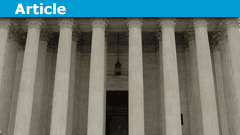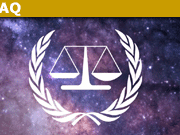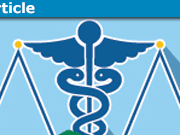Is Science an Authority? How to View Announcements from Scientists
In a previous article, I discussed why scientists (among others) are rarely interested in considering a new theory proposed by a non-scientist: because it’s so unlikely that a person who is not familiar with our best current knowledge in a given area of science would be able to come up with a useful new theory in that area of science. In this article, I’m going to turn around and look at things from the non-scientists viewpoint, and ask: how should non-scientists view public pronouncements from scientists about a particular area of science?
In that previous article, I wrote:
[P]rofessional scientists, when talking to nonscientists, often fail to distinguish the varying levels of confidence we have in different parts of science, and often present science in a way that encourages people to say “Oh, wow!” and accept whatever they are told on the authority of the scientist, rather than to think critically and try to build an understanding of their own.
This seems to suggest that the correct answer to the title question of this article must be “no”: we’re not supposed to accept what scientists say on their authority. (We’re not supposed to accept what anyone says on their authority.) We’re supposed to think critically and try to build our understanding.
But there are at least two objections to this. First, nobody has the time or wherewithal to personally check out everything. This was true even in the early days of science, and it’s even more true today when so many experiments utilize complex and expensive technology that takes years or decades to build. You and I can’t possibly independently check the raw experimental data that comes out of the LHC or LIGO, for example. We have to trust that the people whose job it is to collect that data and make sure it’s recorded properly are doing that job. Of course, there are many checks involved in that process, but the average person isn’t the one doing them.
The second objection is that most people don’t have the expertise to second guess what a scientist says when talking about an area of science. When looking at public exchanges between scientists on, for example, whether the LIGO results are valid detections of gravitational waves, or whether string theory should have as many physicists working on it as it does, most people would be at a loss to judge the arguments being made on either side. It might even be that both sides have valid points, and there is no reasonable way for the average person to weigh the arguments.
However, it also doesn’t seem feasible for the average person to simply refrain from having opinions or making judgments on scientific questions. We rely on the products of science and technology in every area of our lives, so we have an interest in how accurate the science is that lies behind those products. Also, questions of public policy often require citizens to make judgments about scientific questions. And scientists themselves, as I said in the quote from the previous article above, often make claims when talking to non-scientists that can’t (and shouldn’t) be taken at face value.
You might be wondering, though: if we’re supposed to be so cautious about taking scientific claims at face value, how is it that answers to questions here on Physics Forums so often seem to take the opposite view? A question will come up in the relativity forum, say, and the responses will make clear that relativity, at least, seems to be considered as so well established that its claims, at least within its domain of validity, can be taken as authoritative. Or consider this hypothetical: astronomers announce publicly that they have discovered a new asteroid, not previously observed, and have computed its orbit, and it will hit the Earth sometime in, say, 2050. Would we be justified in taking drastic action as a result of this prediction, even if we as ordinary citizens can’t check it for ourselves?
There are at least two useful questions that any ordinary citizen can ask in situations like these. The first is simple: what kind of predictive track record does this area of science have? What kinds of predictions has it made that have been confirmed, and how precise were the predictions? In the case of the astronomers in the above hypothetical, there is an extensive track record of precise predictions that have been confirmed: astronomers routinely predict, for example, the distance of the closest approach to Earth of asteroids, years in advance, and to a precision of tens of kilometers (i.e., much smaller than the diameter of Earth), and have those predictions confirmed. So a definite prediction that an asteroid will hit the Earth a few decades from now is highly likely to be valid.
The second question is, how are the scientists presenting their claims? I chose the above hypothetical because, of course, actual predictions by astronomers of possible future Earth impacts by asteroids have been made public in recent years. In every case, more accurate observations were made within a few months of the initial announcement that ruled out the Earth’s impacts. But the initial announcements themselves are instructive: the astronomers were very careful not to say they had a definite prediction of an Earth impact. They made it clear that (a) the error bars in their current data were wide, and included the possibility of a future Earth impact, but that they expected to quickly collect much more data which would allow them to make their calculations much more precise, and (b) they would not make any definite announcement one way or the other until they were sure.
In other words, the astronomers did exactly what scientists should do when they have new results that might be important to the public: they communicated what information they currently had, what the uncertainties were, and what they were doing to resolve those uncertainties. But this example might seem too easy because it was clear that it would not take too long for more accurate observations to resolve the question: the potential impact was far enough in the future that it was no problem waiting a few months for a definite answer. Also, the scientists had no doubts about what they were going to do to get a definite answer.
A more interesting example is the announcement of the OPERA experimental results which, at least at face value, seemed to imply the existence of faster-than-light neutrinos. Here, the scientists announced that they were befuddled and were asking for help: they clearly understood that the FTL neutrino hypothesis was an extraordinary claim, but they had been unable to find any other explanation for the data on their own, so they were appealing to the world scientific community for assistance in analyzing their experiment. As it turned out, of course, there were no FTL neutrinos: the anomalous data were due to a fairly subtle issue with the experimental equipment that took quite some time to figure out.
While it was being figured out, of course, there were all kinds of speculations and discussions about possible new physics (including a long thread here on Physics Forums). However, the OPERA scientists themselves were careful not to make any claims about new physics in their official statements. They took the position, as noted above, that they were simply asking for help in figuring out what was going on, and making no judgments until that process was finished. So again, I think they were doing what scientists should do in such situations.
In summary, while neither scientists nor anyone else should have their claims believed simply on their authority, there are cases where definite predictions by scientists are reliable enough to be taken as authoritative. If the scientists have a good predictive track record, and if they are presenting their information with due attention to whatever uncertainties are present, then one’s common sense should be a good guide in evaluating their claims, and if it ends up that the uncertainties are resolved and a definite, precise claim is made in such a case, it is worth taking very seriously. If those elements are not present, however, that should be a red flag that one should not be putting too much weight on the claims being made.
- Completed Educational Background: MIT Master’s
- Favorite Area of Science: Relativity






Leave a Reply
Want to join the discussion?Feel free to contribute!